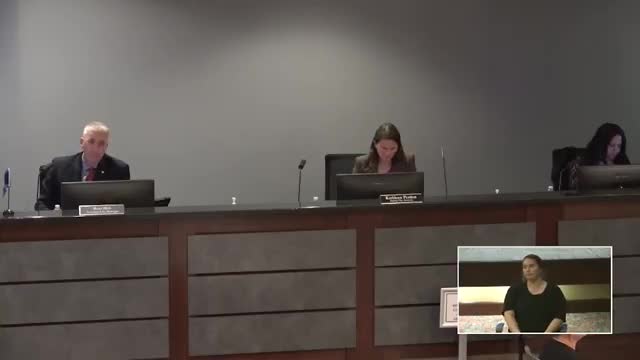Waco staff recommend scaled Riverwalk build; council asks cost review for Webster overlook
Get AI-powered insights, summaries, and transcripts
Subscribe
Summary
Infrastructure staff presented bids and alternates for the Riverwalk from Webster Avenue to Baylor Law School, recommending a package that fits the existing $26 million budget; council asked staff to re‑evaluate an unfunded Webster Overlook option estimated at about $3 million.
City infrastructure staff recommended moving forward with a pared‑down Riverwalk scope designed to fit existing funds while preserving several high‑visibility elements, and asked council for guidance on whether to phase or add the costly Webster Overlook.
Director of Infrastructure Services Charles Leese told the Waco City Council work session that the base Riverwalk bid opened at about $23 million; together with desirable alternates the engineers’ all‑in estimate was roughly $38 million. Staff recommended adding the Cove Bridge ($1.4 million), a cove fountain ($150,000), a lower walkway in front of the Foster Pavilion ($90,000), full planting and irrigation ($900,000), limestone finish at interstate edges, and conduit/vaults for future Wi‑Fi — a package that brought the recommended total to about $25.96 million against roughly $26.2 million in available funds.
Leese reviewed alternates that staff did not recommend because of cost, including a proposed Webster Overlook — a structural viewing/platform feature at the Webster end of the project — estimated by staff to add roughly $3 million and raise the total to about $29 million. Other nonrecommended alternates included a water wall under I‑35 (about $1.8 million) and additional parking/picnic area near Fort Fisher (about $617,000).
Why it matters: the Riverwalk is the central public‑realm project for Waco’s riverfront redevelopment; decisions on alternates will shape visitor experience, capital costs and future maintenance obligations.
Council members and staff discussed whether to remove the Webster Overlook from the first phase and perform preparatory engineering so the feature could be added later. Several council members favored moving forward within the $26 million envelope and directed staff to return with options that either reduce the cost of the Webster Overlook or phase preparatory work. Leese said staff would work with the city manager’s office and finance to present a recommended funding approach by November 18 and noted construction would likely extend into 2027.
Additional details: staff said the initial project was previously bid at about $31 million before value engineering. The current base bid and alternates were solicited after re‑scoping; bids received were roughly $23 million and $27.6 million for the base work, with alternates carrying the difference to the all‑in figure. Leese emphasized the project’s technical challenges — river‑adjacent work, dewatering, coordination with the U.S. Army Corps of Engineers, FEMA and TCEQ, and access under the I‑35 bridges — and said the plan includes four strategically located structured parking facilities in the wider strategic roadmap.
Next steps: staff will reassess the Webster Overlook cost and options (phasing or partial engineering) and return to council with recommendations; if council approves the recommended alternate package without the overlook, the project would proceed toward procurement and construction in 2026–2027.
